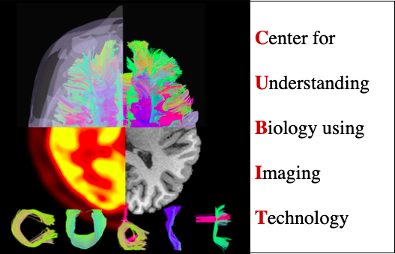
The Center for Understanding Biology using Imaging Technology (CUBIT) uses advanced imaging modalities to investigate neuropsychiatric disorders and their treatment. The group makes important discoveries related to psychiatric disorders as well as developing new radioligands and techniques for quantification and analysis.